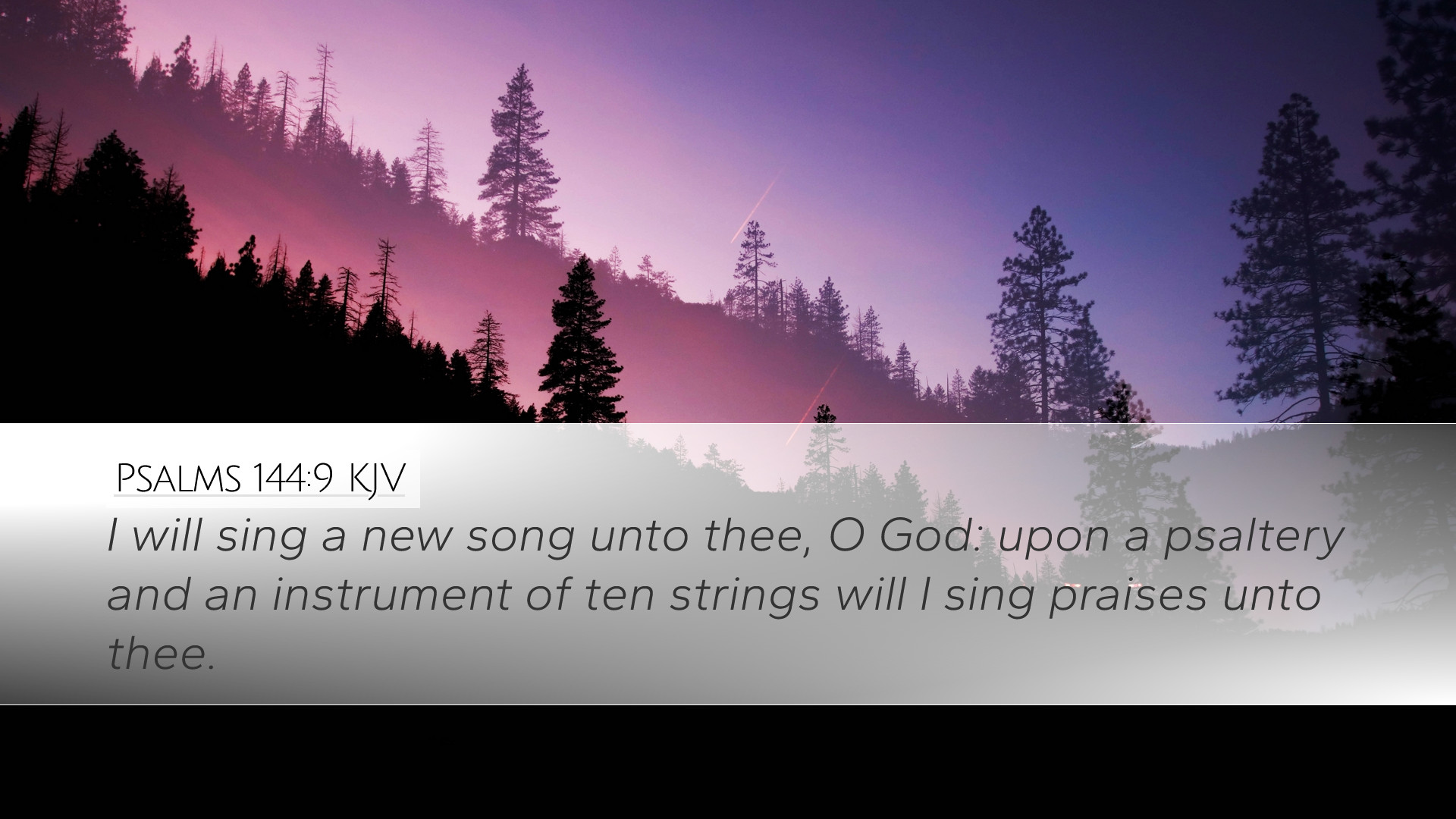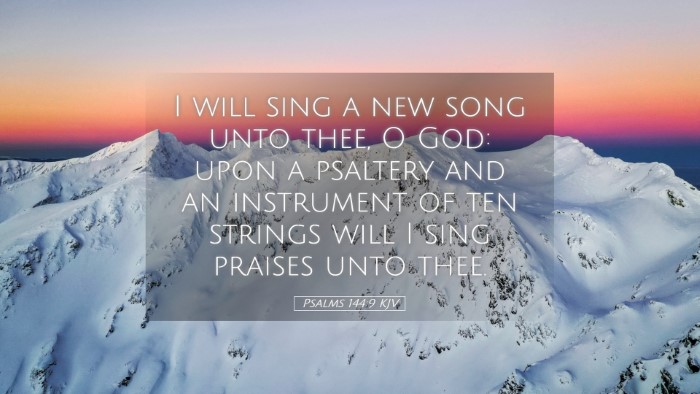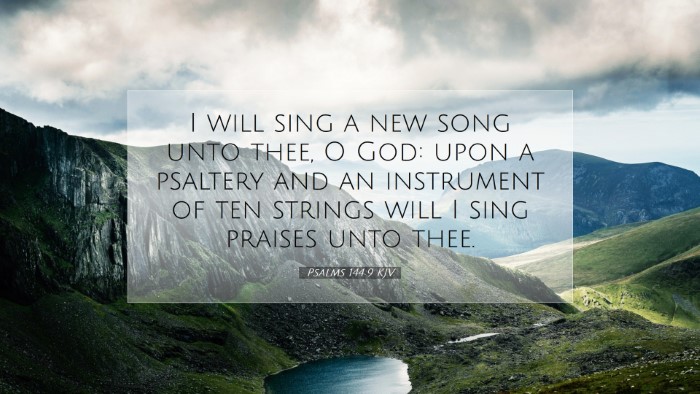Psalms 144:9 Commentary
Verse: Psalms 144:9 - "I will sing a new song unto thee, O God: upon a psaltery and an instrument of ten strings will I sing praises unto thee."
Contextual Overview
The Psalms, a collection of sacred poems, reflect a broad range of human emotions and experiences. Psalm 144 is attributed to David, who expresses in this passage his deep desire to praise God with a fresh and spirited song. This desire underscores the themes of worship, gratitude, and the acknowledgment of God's sovereign power in the life of His people.
Thematic Significance
David's proclamation of singing a "new song" suggests a continual renewal of worship and expression of God's greatness. This idea resonates with various themes found in biblical literature, indicating the importance of fresh expressions of faith that resonate with current experiences.
1. The New Song
Albert Barnes emphasizes the significance of a "new song" as an expression of gratitude for God's mercies. He interprets "new" not necessarily in terms of composition but in the freshness of heart and realization of God's ongoing grace in the life of the believer.
2. Instruments of Praise
Matthew Henry highlights the mention of the psaltery and an instrument of ten strings. He points out that the use of musical instruments in worship indicates the joy and celebration involved in praising God. The ten-stringed instrument could symbolize fullness and completeness in worship, suggesting that every aspect of human creativity can be employed to honor God.
3. The Act of Singing
Adam Clarke provides insights into the act of singing as a natural response to divine blessing. Clarke notes that singing praises allows for an engagement of both the heart and the mind in worship, encouraging believers to express their thoughts and emotions vocally. This reflects the scriptural command found in Colossians 3:16, where thanks and praise to God are to be expressed through song.
Theological Implications
The act of singing a new song indicates a dynamic relationship with God, characterized by ongoing revelation and response. It suggests that as God's people experience His works—be they deliverances in trouble or daily mercies—there ought to be an equally responsive act of worship reflecting those experiences.
1. Transformative Worship
This verse underscores how worship transforms. As believers engage in singing, especially songs springing from new experiences or understandings of God, they are not merely participants but also conduits of divine praise. This interaction allows them to express their faith and faithfully acknowledge God’s work in their lives.
2. The Invitation to All
The call to sing new songs applies to all believers, indicating that everyone can contribute their unique experiences in worship. Each life story becomes a verse in the ongoing song of faith, suggesting that the community of believers is enriched by the diverse testimonies of God’s acts in individual lives.
Practical Applications
For pastors, students, and theologians, this passage provides a foundation for understanding the essence of worship in both personal and communal contexts. It serves as a reminder that worship should not be stagnant; instead, it is a living expression of what God is doing among His people.
- Reflection on Personal Experiences: Encourage congregations to reflect on their personal journeys with God and express those through song and worship.
- Incorporating New Songs in Worship: Integrate contemporary worship music alongside traditional hymns to celebrate the new expressions of faith.
- Teaching on the Importance of Music: Educate congregations on the significance of music in biblical history and its role in individual and communal worship.
Conclusion
Psalms 144:9 invites us to engage in a beautiful tapestry of worship characterized by creativity and renewed praise. The new song beckons believers towards a relationship marked by fresh encounters with the Divine. In a world that often feels repetitive and monotonous, the call to sing a new song serves as a vital reminder of the living God who is actively involved in the lives of His people, deserving every expression of worship we can muster.


